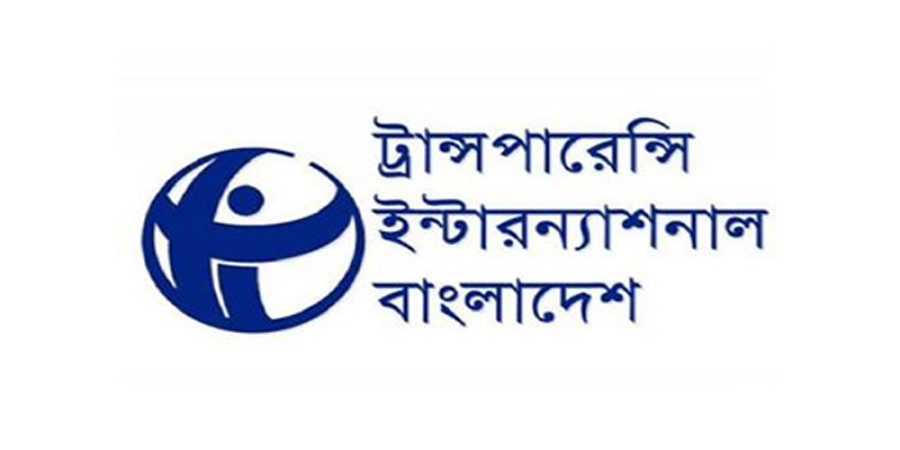
ছবি: Photo: Collected
Transparency International Bangladesh criticizes the interim government's proposed budget for undermining anti-corruption reforms and constitutional principles
Transparency International Bangladesh (TIB) has strongly criticized the interim government’s 2025–26 proposed budget, particularly condemning the decision to continue allowing the legalization of undisclosed or “black” money. In a press statement issued on Monday, June 2, the organization stated that this move is directly opposed to the fundamental goals of state reform, especially concerning the Anti-Corruption Commission (ACC). According to TIB, the decision is not only unethical and discriminatory but also unconstitutional.
Dr. Iftekharuzzaman, Executive Director of TIB, stated in the press release that regardless of how the decision is framed, it clearly demonstrates a disregard for meaningful reform, especially efforts to combat corruption. He further argued that the interim government has effectively surrendered to the influence of the real estate lobby, which he identified as one of the most corruption-prone sectors in the country. Dr. Iftekharuzzaman emphasized that the move contradicts Article 20(2) of the Constitution, which mandates that the state must ensure unearned income is considered illegal. In his view, the continuation of the opportunity to legalize black money is inherently discriminatory, allowing individuals with illegal earnings to dominate the real estate market and sidelining law-abiding citizens who rely on legitimate income to purchase homes.
The TIB director further noted that the decision sends a dangerous message. By continuing to offer an avenue for legalizing black money, the government appears to be encouraging the generation of illicit wealth throughout the year, only to provide a path for legitimization at year-end. He described this approach as a policy of appeasement towards a corrupt industry, rather than an effort to uphold transparency and justice. He warned that the measure would embolden corrupt practices, disincentivize honesty, and marginalize those who comply with legal tax and income standards.
According to TIB, the government’s rationale for the policy is inconsistent with its claimed commitment to reform and good governance. The organization demanded the immediate and permanent repeal of any provision that allows for the legalization of black money. It urged that the revised budget explicitly eliminate this opportunity and called for robust action to identify the sources of such funds and hold those responsible accountable. In addition, TIB stressed the need for a tax system grounded in equity and justice, ensuring that those who abide by the rules are not disadvantaged.
The statement also pointed to a broader contradiction in the government's current approach. TIB noted that if the government wants to be taken seriously in its anti-corruption agenda, it must unequivocally close all loopholes that permit the legitimization of illicit wealth. Otherwise, the public will perceive these actions as merely symbolic, undermining trust in anti-corruption initiatives and deepening the normalization of corruption in society. This, the organization argued, would severely damage prospects for establishing genuine good governance.
TIB reminded that one of the key recommendations of the ACC Reform Commission—formed by the current government—was to completely and permanently shut down any avenues for legalizing black money. According to the organization, there is already cross-party political consensus on this issue. However, the interim government’s stance in the new budget runs counter to this consensus, creating a contradictory and embarrassing position for itself.
The organization further expressed disappointment over the government’s handling of another critical issue: the recovery of laundered money. The budget speech, it noted, failed to offer any clear update or roadmap regarding progress in retrieving the vast sums of wealth reportedly siphoned out of the country. The statement mentioned that only a single sentence was used to address the issue, reflecting a lack of seriousness or strategic planning. Although the budget proposed taxes and fines for individuals who have laundered money abroad and later renounced their Bangladeshi citizenship, it failed to specify the mechanisms by which such provisions would be enforced.
In addition to this, TIB criticized the budget for not addressing the structural challenges in revenue collection. It noted that there was no mention of how management would be separated from policy-making to ensure transparency and accountability in tax administration. The lack of strategic clarity in this area, it argued, further contributes to a sense of hopelessness among citizens expecting meaningful change.
In conclusion, TIB reaffirmed its belief that if the government is serious about fighting corruption and ensuring governance reforms, it must abandon all forms of black money legalization. Otherwise, such policy decisions will only reinforce public skepticism and encourage a culture where corruption is normalized and accountability is absent.
repoter






